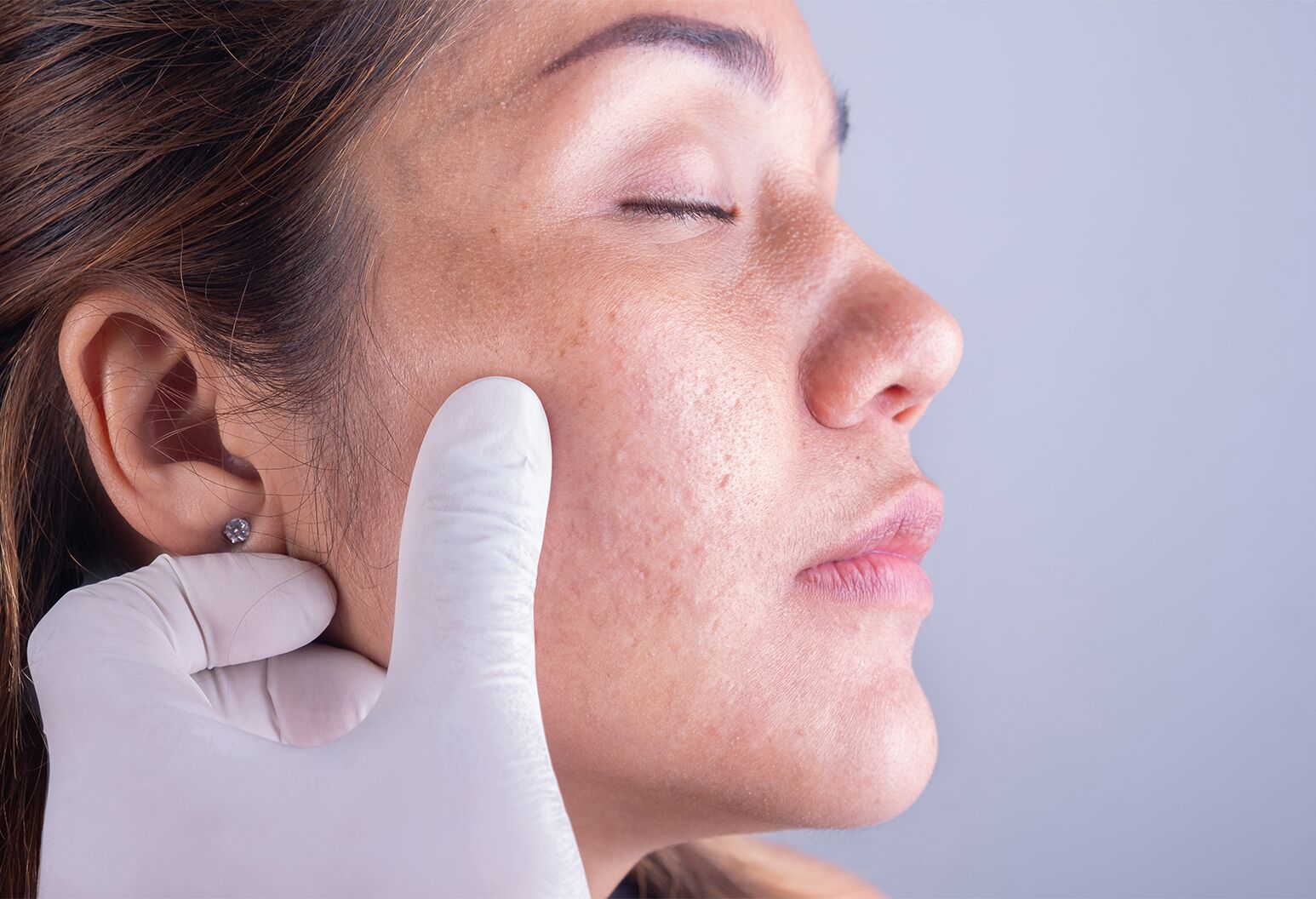Exploring the Duty of Dermatologists in Detecting and Treating Diverse Skin Problem With Precision
From typical problems like acne and dermatitis to a lot more intricate problems such as cancer malignancy or unusual hereditary skin illness, skin doctors are at the forefront of detecting and dealing with these problems with accuracy. Past the surface of skin conditions lie interconnected elements that influence diagnosis and treatment outcomes.
Importance of Early Detection
Early detection of skin problems plays a vital duty in the efficient treatment and management by skin doctors. Prompt recognition of skin concerns permits timely intervention, which can avoid the progression of conditions and minimize potential difficulties. Skin doctors count on their competence to identify subtle changes in the skin that may suggest underlying issues, such as skin cancer, dermatitis, psoriasis, or eczema. By conducting detailed exams and using diagnostic tools like biopsies or dermoscopy, skin doctors can precisely diagnose a vast array of skin problems.
Moreover, early detection enables dermatologists to customize therapy plans to the specific requirements of each individual. Discovering skin cancer cells in its early phases dramatically enhances the prognosis and boosts the likelihood of effective treatment end results. By stepping in early, skin specialists can also assist reduce signs and symptoms, avoid getting worse of the condition, and boost the overall lifestyle for their clients. Therefore, highlighting the importance of very early discovery emphasizes the important function that dermatologists play in advertising skin health and wellness and wellness.
Advanced Diagnostic Methods
Making use of modern innovation and specific expertise, dermatologists use advanced analysis strategies to accurately identify and evaluate various skin problem. Among the primary devices in the skin specialist's analysis toolbox is dermoscopy, a non-invasive method that enables for the examination of skin frameworks not noticeable to the nude eye. By amplifying the skin, dermoscopy aids in the early detection of cancer malignancy, basic cell carcinoma, and other skin cancers cells. Furthermore, dermatologists might utilize confocal microscopy, a high-resolution imaging technique that enables them to picture skin at a mobile level without the need for a biopsy. This technology is particularly helpful in identifying inflammatory skin problem and monitoring therapy efficacy.
Furthermore, molecular screening has actually reinvented the diagnosis and treatment of skin illness by allowing dermatologists to assess genetic anomalies related to conditions such as melanoma and genetic dermatoses. Via techniques like polymerase chain response (PCR) and next-generation sequencing (NGS), skin specialists can supply individualized treatment strategies based on an individual's specific hereditary profile. These sophisticated diagnostic devices improve the accuracy and efficacy of skin-related treatment, inevitably resulting in better results for patients.

Tailored Treatment Approaches
With an extensive understanding of skin disease accomplished with sophisticated analysis techniques, skin doctors tailor therapy methods to resolve specific client needs efficiently. This customized technique is critical in making sure ideal end results for patients with diverse skin conditions. By thinking about aspects such as skin kind, clinical background, lifestyle routines, and treatment choices, skin specialists can develop treatment plans that are specifically customized to every patient.
Tailored therapy methods might include a combination of therapies such as topical drugs, oral drugs, minimally invasive treatments, or way of life adjustments. Patients with acne may profit from a regimen that consists of topical retinoids, oral prescription antibiotics, and in-office treatments such as chemical peels or laser therapy. On the other hand, individuals with dermatitis may need a therapy plan concentrated on mild skin care regimens, creams, topical corticosteroids, and identifying and avoiding triggers that worsen their problem.

Handling Chronic Skin Conditions
Dermatologists play a vital role in creating long-term management approaches for persistent skin conditions, ensuring reliable care and boosted quality of life for people - Chromaderm Doncaster. Handling chronic skin problems needs an extensive strategy that exceeds just treating signs and symptoms. Skin specialists are educated to not only diagnose these problems accurately yet also to develop individualized treatment strategies that address the underlying reasons and elements adding to the skin problem's perseverance
In managing persistent skin problem, skin specialists often utilize a mix of treatment methods tailored to every person's particular demands. This may consist of topical medications, oral drugs, lifestyle adjustments, and step-by-step interventions such as laser therapy or photo-therapy. Routine follow-up visits are important to keep an eye on the condition's development, change treatment as required, and offer continuous assistance and education to individuals.
Moreover, skin doctors play a pivotal function in equipping people to take an active role in managing their skin problem. By enlightening patients about their condition, therapy choices, and safety nets, dermatologists aid people make notified choices and grow healthy skin habits that contribute to long-term skin health and wellness and general health.
Collaborative Treatment Techniques
In the alternative monitoring of skin problem, joint care strategies involving numerous health care experts are necessary for optimizing individual results. Skin specialists typically function in multidisciplinary groups to give detailed care that deals with the varied needs of clients with skin problems. By collaborating with key care physicians, specialists, cosmetic surgeons, and various other professionals, skin specialists can guarantee that patients get integrated and collaborated treatment customized to their particular condition.
Collective treatment techniques also extend to individual education and support. Dermatologists can function very closely with pharmacologists, registered nurses, and psychologists to enlighten clients regarding their skin problem, treatment options, and safety nets. This interdisciplinary approach equips people to actively join their care and make educated decisions regarding their health and wellness.
Additionally, collaborative care enables an extra alternative assessment of individuals, considering not just the physical signs of their read this post here skin problem yet additionally the social and mental effect it may have. By taking into consideration the wider ramifications of skin problem, medical care specialists can establish extra tailored treatment plans that deal with the special needs of each client. Inevitably, collaborative care approaches play an essential role in providing high-quality, patient-centered care for people with diverse skin disease.
Conclusion
In conclusion, skin doctors play a crucial function in diagnosing and dealing with a vast variety of skin problems with accuracy. By managing chronic skin conditions and applying joint care approaches, dermatologists ensure effective and thorough treatment for their patients.
Skin doctors count on their expertise to acknowledge refined changes in the skin that might suggest underlying troubles, such as skin cancer, dermatitis, dermatitis, or psoriasis. By multiplying the skin, dermoscopy aids in the early discovery of cancer malignancy, basal cell cancer, and various other skin cancers.With a thorough understanding of skin conditions attained via sophisticated diagnostic methods, dermatologists tailor therapy methods to resolve private patient needs successfully. Dermatologists are trained to not only identify these problems accurately however also to create personalized treatment strategies that attend to the underlying causes and elements contributing to the skin condition's determination.
In handling persistent skin problems, skin specialists usually check over here use a combination home of therapy methods customized to each individual's particular needs.